Blog
The Women Impacting Newark in 2021
April 14, 2021 | April Mason
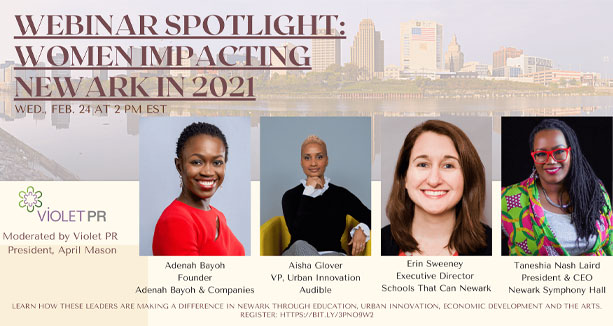
How will New Jersey’s largest city rebound post-COVID-19? Violet PR recently had the honor of hosting a webinar that featured Newark’s top female leaders, discussing urban innovation, economic development, education, and the arts.
Four extraordinarily smart, brave and talented women joined us to take questions and provide meaningful insights into the future of the Brick City. Our panel included Adenah Bayoh, founder of Adenah Bayoh & Companies, Aisha Glover, VP of Urban Innovation at Audible, Erin Sweeney, executive director of Schools That Can Newark and Taneshia Nash Laird, president and CEO of Newark Symphony Hall. Their work has been crucial for Brick City’s rejuvenation, and all will be at the forefront of turning Newark into a regional powerhouse in the post-pandemic economic landscape.
Newark in 2021: Four Economic Development Topics
- How COVID-19 has impacted businesses and the city of Newark
- Employment opportunities available in Newark today
- How to support small businesses and job growth in Newark
- What the future holds for Newark in a post-COVID landscape
1. HOW COVID-19 HAS IMPACTED BUSINESSES AND THE CITY OF NEWARK
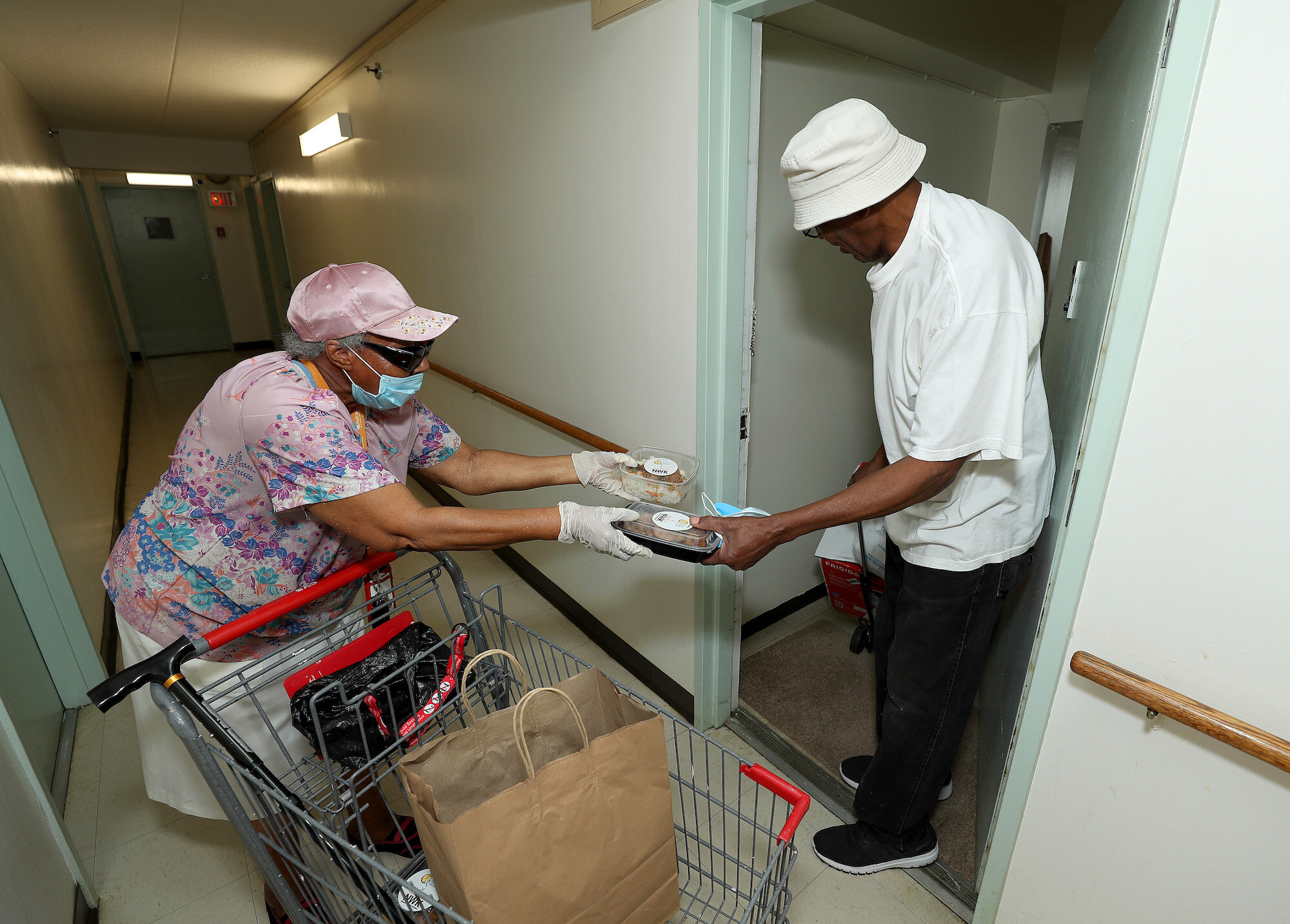
Aisha: COVID has impacted Newark quite hard. We’re coming up on a year of virtual working. So, there has been a dramatic reduction in foot traffic in the city because of closure of corporations.
Audible helped put together an effort called Newark Working Kitchens, which has been up and running every single week since COVID began. We pay restaurants to prepare a certain number of meals for folks across the city who need them most. By doing so, we’ve been able to help keep businesses open and afloat while also retaining jobs. So far, 30 businesses are participating and over 200 jobs have been retained. In fact, some of those businesses have said that if it wasn’t for Newark Working Kitchens, our business would have closed. The money they are receiving is accounting for up to 80% of some businesses’ revenue. It helps gives them certainty and works as both a safety net and a bridge to what’s next.
Adenah: As Aisha said, there has been a significant impact for my businesses – especially the restaurants. The pandemic was like a one-two punch.
COVID opened my eyes to two things:
- I need a plan for something like this in the future.
- The problems I have faced are not my fault. There is something wrong with the system and we have to fix it.
For example, prior to COVID it was already tough to access capital. During COVID, it became even harder. I operate in marginalized communities, but it took COVID to understand just how marginalized we are. COVID gave us data that pointed out all the discrimination that occurs in the banking sector with banks refusing to give loans to people that look like me.
For example, before COVID hit, seven different banks turned me down for a loan to open my first IHOP. COVID also reinforced my belief in giving back to the community. So, I committed to paying my 280 employees for the first 30 days of lockdown whether they came to work or not.
We also came up with a program in which, we provide Newark residents with free pancakes from 9 a.m. to 2 p.m. From 11 a.m. to 2 p.m., we give lunches to kids who are out of school. They can just walk in – no questions asked.
It is important to me because when I was in public school, I didn’t eat if school wasn’t open. So far, we have served almost 10,000 pancakes and 7,000 lunches.
Erin: No organizations were more impacted by the pandemic than our schools. Kids are missing out on so much because there’s only so much that can be done virtually. We won’t know what the impact has been on our youth for a long time.
We need to continue looking for partners who are willing to invest in training programs, so students don’t get left behind. At Schools That Can, we’re taking the opportunity to close the skills gap through real-world learning. Students develop the type of skills needed for life – like problem-solving and teamwork.
Taneshia: First of all, I’d like to say that all three of the women on this panel are totally under-selling what they are doing. They’re creating jobs, filling skills-gaps and making a real difference in the community.
What Adenah said is so important. The system is not set up for Black-owned businesses. We live in a community with high-trauma and because of that trauma, we have high co-morbidities.
I have two employees who lost six family members between them. And one of those employees lost her own life two weeks ago. I think what the pandemic did was it highlighted all the inequities in our system.
I don’t know if you remember, but during the pandemic, the Wells Fargo CEO said, “The unfortunate reality is that there is a very limited pool of Black talent to recruit from.”
But in October, we announced an all-volunteer, all-Black investment committee of executives from Facebook, Goldman Sachs and Alliance Bernstein who all live in the area. So, to me, that showed what the Wells Fargo CEO was saying is not true. It also showed there are people who live in a totally different universe than us.
2. EMPLOYMENT OPPORTUNITIES AVAILABLE IN NEWARK TODAY
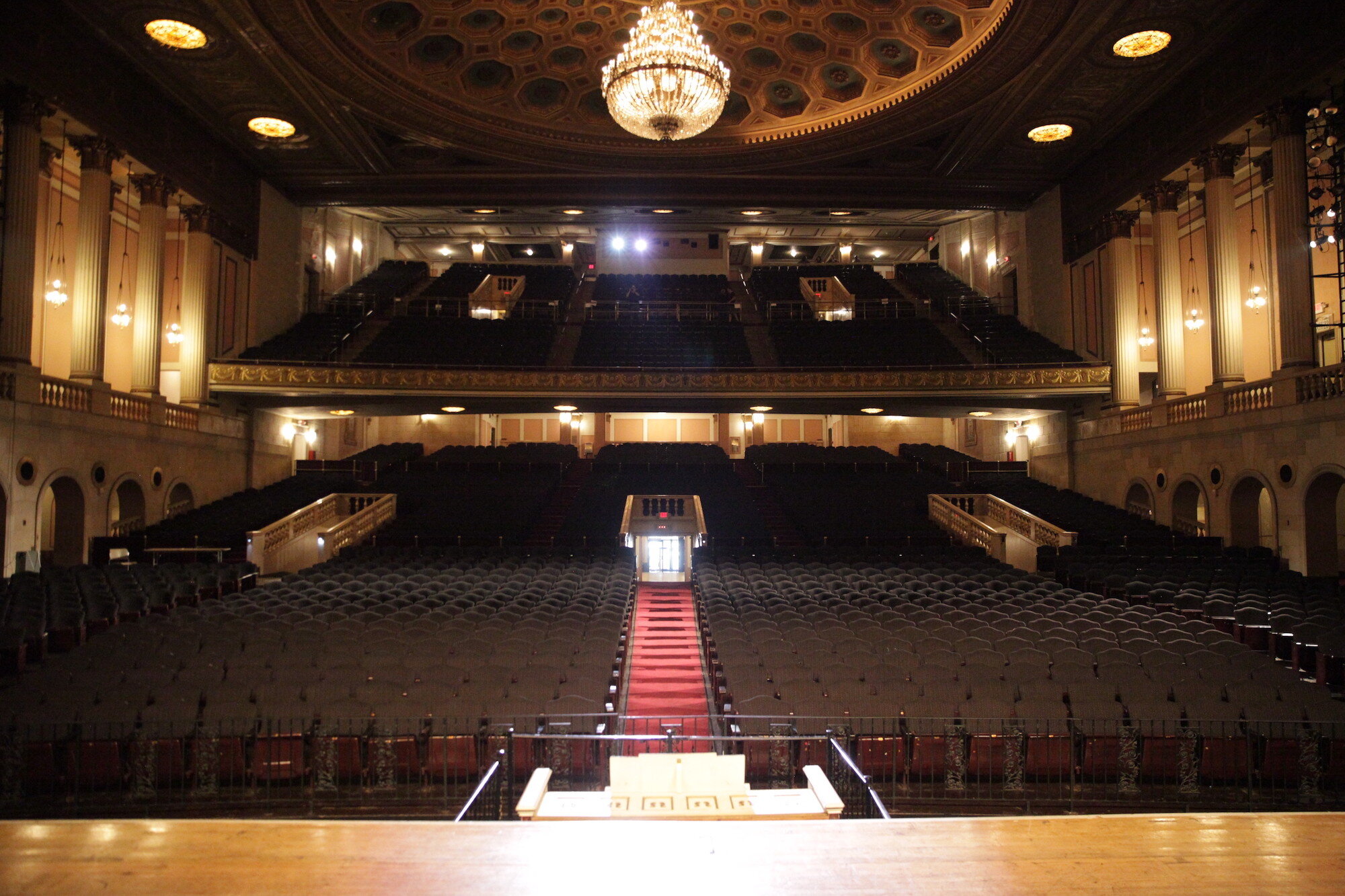 Aisha: Audible is being aggressive in sourcing local talent. For years, many of us have abbreviated or changed our names on resumes to get a call-back. I’m here to say, that if your name is “Aisha” it should stay “Aisha.” And if your address is in Newark, it should stay in Newark.
Aisha: Audible is being aggressive in sourcing local talent. For years, many of us have abbreviated or changed our names on resumes to get a call-back. I’m here to say, that if your name is “Aisha” it should stay “Aisha.” And if your address is in Newark, it should stay in Newark.
Prioritizing local talent is not just philanthropic, it is a good business decision. There’s higher retention and higher employee satisfaction. One thing the mayor and corporations have embraced are “buy local” efforts to push spending out onto the streets. At Audible, we send our workforce out into the city and arm them with debit cards to patronize local businesses instead of visiting the corporate cafeteria.
We are the world’s largest producer of audio sound entertainment. So, we’re doubling down on our efforts to work with local talent. We’re also doing a ton of work with local suppliers, entertainers and vendors.
Taneshia: Newark was founded in 1666 and is the third-oldest metropolis in the nation behind New York City and Boston. There are a lot of great buildings here that could use some love.
In fact, Newark Symphony Hall is 96 years old and will be undergoing a four-year, $40 million renovation. The process will create 500 construction jobs. But these are different types of jobs because it’s historic preservation, which is a specialized skill.
There are people with construction experience around, but not with historic preservation. We need to get the people in the community up-skilled. Recently, we partnered with the National Trust for Historic Preservation to create what I believe is the first-in-the-nation historic preservation construction trades training program.
We’re essentially creating a career accelerator and business incubator in historic renovation. This could be an economic growth opportunity for the whole city.
3. HOW TO SUPPORT SMALL BUSINESSES AND JOB GROWTH IN NEWARK
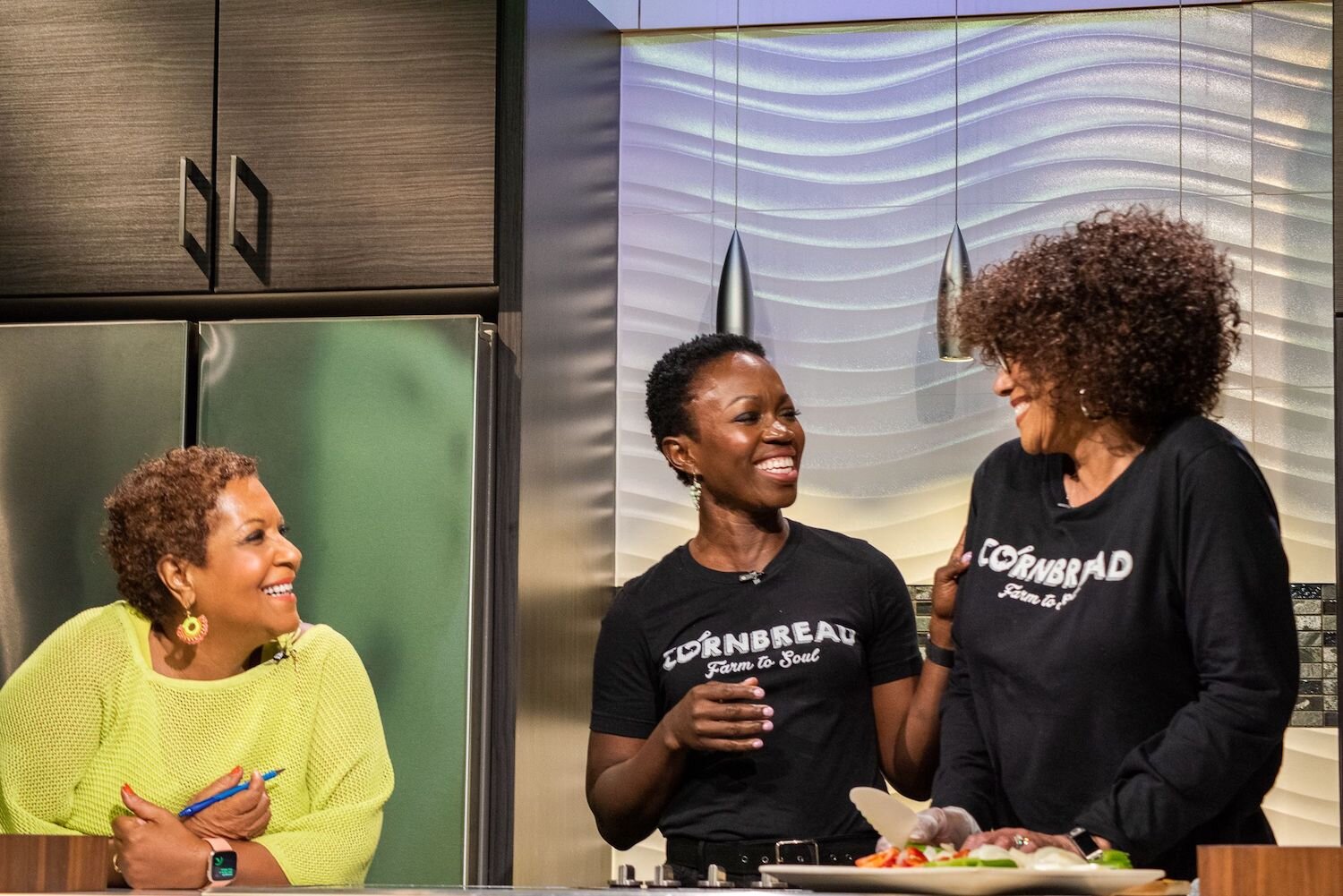 Adenah: One simple way to support local Black or Latino-owned businesses is to simply salute and acknowledge them for what they have accomplished. If others have to give 100% to open a business, it took them 200%. For example, when I opened my first IHOP, I emptied out my 401K plan, took all the equity out of my house and my aunt emptied the only savings account she had. I also went to a family friend who then refinanced his house. When I opened that IHOP, I was literally bankrupt. I opened the doors in a deficit. That is no way to open a business – and all because no one at the bank was interested in me at all. There is a bank two doors down from the IHOP who said “no” to me because I wasn’t white or male.
Adenah: One simple way to support local Black or Latino-owned businesses is to simply salute and acknowledge them for what they have accomplished. If others have to give 100% to open a business, it took them 200%. For example, when I opened my first IHOP, I emptied out my 401K plan, took all the equity out of my house and my aunt emptied the only savings account she had. I also went to a family friend who then refinanced his house. When I opened that IHOP, I was literally bankrupt. I opened the doors in a deficit. That is no way to open a business – and all because no one at the bank was interested in me at all. There is a bank two doors down from the IHOP who said “no” to me because I wasn’t white or male.
To earn a CRA (Community Reinvestment Act) rating, banks do not have to invest in someone like me. They only need to invest in someone who does business in my neighborhood. It’s wrong.
We have a ton of banks downtown. But they aren’t stepping up unless the government makes them. We have to build a system that works for everyone – regardless of gender or race.
4. WHAT THE FUTURE HOLDS FOR NEWARK IN A POST-COVID LANDSCAPE
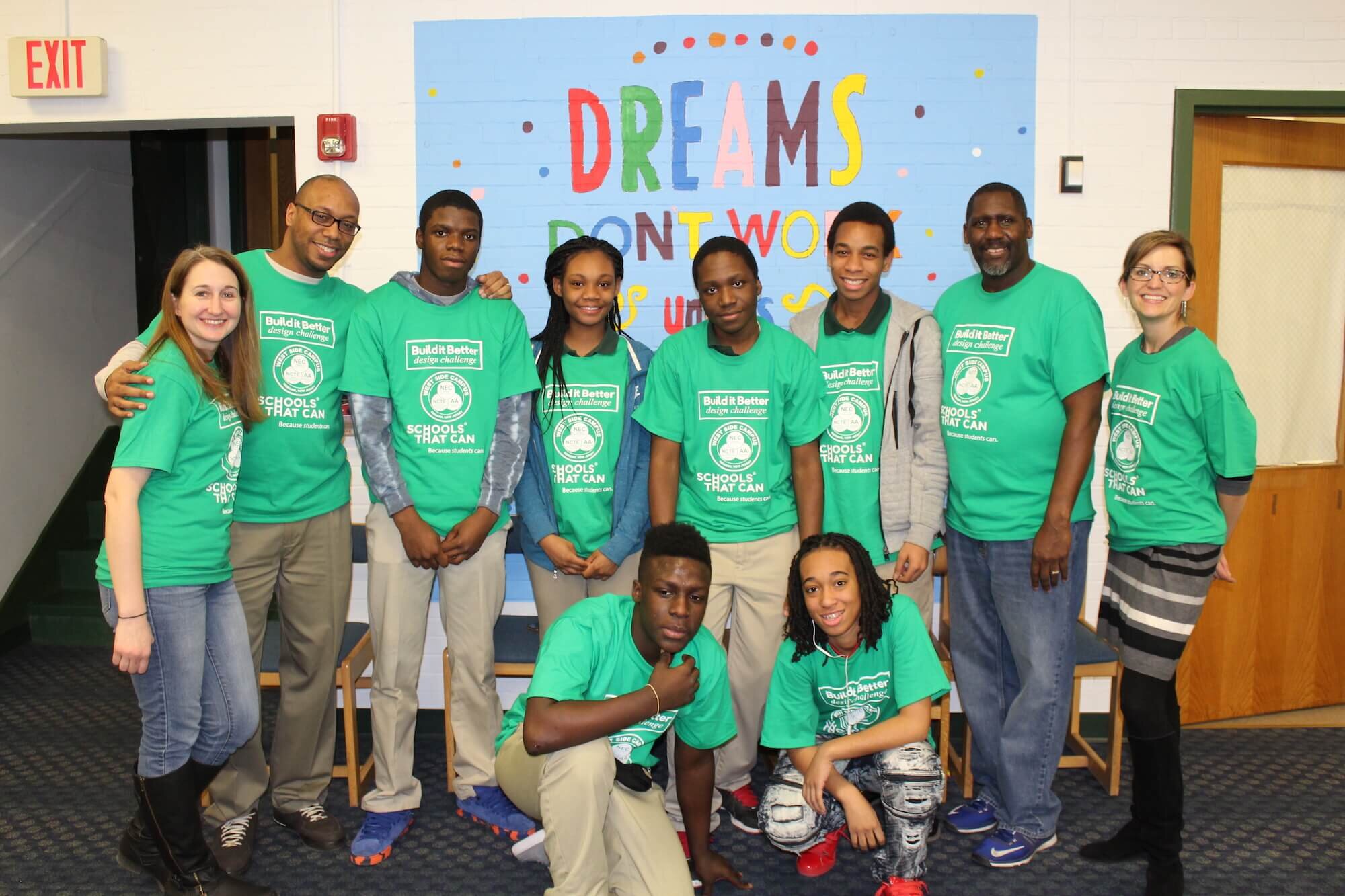 Erin: A big piece of everything we are talking about is thinking younger. How are we preparing our young people for the workforce of the future and for the workforce as it is now? How are our small and local businesses involved? What kind of internships are available?
Erin: A big piece of everything we are talking about is thinking younger. How are we preparing our young people for the workforce of the future and for the workforce as it is now? How are our small and local businesses involved? What kind of internships are available?
Lots of times when panels and initiatives are formed on workforce development, we focus on adults. But we should start thinking about workforce development as a continuum that begins in the K-12 space. We need to start preparing students to fill high-need positions and keep kids engaged.
Taneshia: We hope to reopen in the fourth quarter (of 2021). Hopefully, most people will have their two shots by then. But we’re looking forward to contributing to the community again by making people feel good with good music and entertainment.
Adenah: Corporations need to take a step back and look at the messages they are sending to their community. They are saying, “I am not going to invest in your community unless you look like me.”
During our webinar, these four women were able to provide us with many more valuable insights. Their work and expertise are sure to be a boon to New Jersey’s largest city for years to come.
A big shout-out to Adenah, Aisha, Erin and Taneshia for joining us and for all they do for Newark!
If you want to see the webinar in its entirety, you can stream it here.